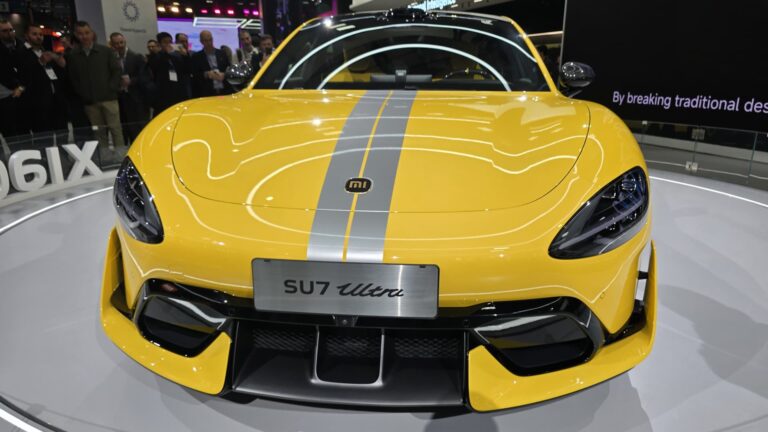Key Points
Xiaomi has begun preparations to find showroom locations in Europe for its electric vehicles and may even manufacture the cars locally in the future as it plans its expansion in the region, a top executive at the Chinese tech giant told CNBC. The Beijing-headquartered firm last month announced plans to bring its electric cars, which have proved popular in China, to Europe in 2027. That move would place Xiaomi among Chinese EV players, including Xpeng and Guangzhou Automobile Group, that are seeking to expand in Europe. In a wide-ranging interview that aired on Thursday, Xu Fei, a vice president at the company, unveiled details about Xiaomi’s plans to launch its electric vehicles in 2027 in Europe that have not previously been reported. “We had our field research here in June. A couple executives [are] leading the field research so that we are preparing for the sales network, for the partnerships,” Xu said of Xiaomi’s EV plans. “The whole organization is getting started.” Xiaomi entered the EV market only last year with its SU7 sedan , followed by a sports utility vehicle called the YU7 . The company has delivered over 300,000 cars since then. The success of its electric vehicle foray has lifted the company’s shares by around 170% over the past 12 months, making its auto ambitions outside China a key focus for investors. 1810-HK 1Y mountain Xiaomi’s shares have surged by more than 170% over the past 12 months. Xu said the company will likely open showrooms in Europe similar to those in China. “Users need to experience the car, not just for test drive … they also need to understand the ecosystem,” Xu said, referring to the company’s suite of products, which spans everything from smartphones to home appliances. Xu did not reveal which model Xiaomi plans to launch in Europe, but said the company would not “design a totally new product.” Xiaomi’s rollout comes as the European Union maintains tariffs on Chinese-made EV imports, prompting companies to think about their launch strategies, with some considering local production. Xu told CNBC that building a production facility won’t be the “first step” in Xiaomi’s EV journey in Europe, but it is likely in the future. “Theoretically, in [the] future, I think we definitely will do that,” Xu said in response to a question about whether the company is thinking about manufacturing cars in Europe. “The logic is very simple. We want to be one of the top five players in the world in 15 to 20 years. If you want to do that, you definitely have to have your own factory here, right?” Xu said. Xiaomi’s 2027 European launch will thrust it into a market where its domestic rivals, from Xpeng to BYD , have already entered and laid out their lofty ambitions . Guangzhou Automobile Group , for example, aims to increase its European electric car sales 17-fold over the next two years and is exploring local manufacturing too. Xu defended Xiaomi’s slower approach. “We need full time to do all these kinds of preparations to make sure the car is solid enough for those people here in the Europe market … because … we need to set a very high standard,” she said. “When we get into the market, we are very dedicated. And it’s not just some random Chinese product we have coming here in the Europe market. It’s a product, with the best user experience for the European users.”

